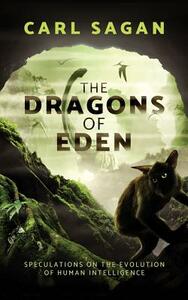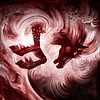Take a photo of a barcode or cover
128 reviews for:
The Dragons of Eden: Speculations on the Evolution of Human Intelligence
Carl Sagan
128 reviews for:
The Dragons of Eden: Speculations on the Evolution of Human Intelligence
Carl Sagan
The details are sometimes dated, but the conclusions are still interesting and appropriate.
A beautifully written book. Even though it is outdated it reads well and Dr. Sagan shows that he anticipates the breakthroughs in technology that have since occurred. So well done, of course it won the Pulitzer prize!
emotional
hopeful
informative
inspiring
reflective
medium-paced
“We are a scientific civilization,” declared Jacob Bronowski. “That means a civilization in which knowledge and its integrity are crucial. Science is only a Latin word for knowledge… Knowledge is our destiny”.
It has the feel of an old but good NatGeo documentary. Plenty of the facts presented are by now falsified or suspect, enough for the reader to need to superimpose the material learned onto a more recent source, negating its goal as an educative object.
Instead, and in this the book excels, it is a piece of not science but of Natural Philosophy, in its literal sense. Pontifical and ponderous, giving a feeling of awe and humanity from the inhuman universe.
Instead, and in this the book excels, it is a piece of not science but of Natural Philosophy, in its literal sense. Pontifical and ponderous, giving a feeling of awe and humanity from the inhuman universe.
Too many 'Mind freaking blown' moments in this book * _ *
challenging
informative
inspiring
reflective
slow-paced
Carl Sagan is such a treasure. He writes with such clarity and passion for whatever subject he sets his sights on, which perfectly captures the wonder of the natural world. His style is informative but accessible to everyone, which is why he's one of the greatest popular science writers in my eyes. It doesn't feel like a dry textbook; it feels like going on a long walk and talking with someone who is simply passionate about a subject and wants to share it with you, with no pressure or strings attached. This subject is outside of his usual realm, which he freely admits, but his thoughts are still fascinating and thought-provoking. There is a good deal of speculation involved in this book (hence the title) but I think it's a wonderful expression of the curiosity needed for great science. Much of the information is now outdated, like the idea of the triune brain, but I won't hold that against him, seeing as it was written in the 1970s and that was the best information available at the time.
3.5/5 In all honesty, and even though I'm a big fan of his work, this book felt a bit condescending on those who aren't scientifically-inclined (more in the later parts of the book). That said, it covers an interesting variety of topics and will be great for those wondering about human intelligence in general.
informative
medium-paced




